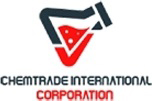Industrial AcidHere, we offer Industrial Acid which is a chemical substance that, upon dissociation, produces hydrogen ions. This is utilized in a wide variety of sectors for a variety of reasons and is a crucial component in chemical processes. It is used to remove oxide coating off steel items in the textile, food, and leather sectors. Industrial Acid is provided in some ranges like Sulfuric Acid, Hydrochloric Acid Ibc Tank, Hydrochloric Acid, and Sulphuric Acid. Care and safety must always come first while working with this chemical. This acid is tested under various parameters to ensure its high quality and effectiveness. This is economical and safe to use. Industrial Acid Features:1. Acidic Properties: Industrial acids are characterized by their ability to release positively charged hydrogen ions (H+) when dissolved in water, leading to a reduction in pH and the characteristic sour taste. They can react with various substances, often leading to corrosion or chemical transformations. 2. Corrosive Nature: Industrial acids are highly corrosive substances. They can react with metals, organic materials, and other substances, leading to degradation, erosion, and structural damage. Proper handling, storage, and safety measures are essential when working with industrial acids. 3. Diverse Applications: Industrial acids have a wide range of applications across industries. They are used in metal processing for pickling, cleaning, and etching surfaces; in chemical synthesis for catalytic processes; in mining and metallurgy for ore processing and refining; in water treatment for pH adjustment and coagulation; and in various manufacturing processes. 4. Types of Industrial Acids: There are various types of industrial acids, each with its unique properties and applications. Some common industrial acids include: a. Sulfuric Acid (H2SO4): Widely used in fertilizers, chemical manufacturing, petroleum refining, and metal processing. b. Hydrochloric Acid (HCl): Used in pickling metals, cleaning, and pH adjustment in various industries. c. Nitric Acid (HNO3): Employed in the production of fertilizers, explosives, and various chemicals. d. Phosphoric Acid (H3PO4): Found in food and beverage production, as well as in the manufacturing of detergents and fertilizers. e. Acetic Acid (CH3COOH): Used in the production of various chemicals, solvents, and polymers. f. Citric Acid (C6H8O7): Widely used in food and beverage production and as a chelating agent in cleaning products. g. Formic Acid (HCOOH): Used in leather tanning, dyeing textiles, and as a coagulant in rubber production. h. Handling and Safety: Due to their corrosive and reactive nature, industrial acids require careful handling and storage. Workers must follow safety protocols, i. wear appropriate protective gear, and be trained in proper procedures to prevent accidents and exposure. 5. Environmental Impact: The disposal of industrial acids requires careful consideration to prevent environmental contamination. Acidic waste must be treated and neutralized before being released into water bodies or the environment to minimize negative impacts. 6. Regulations: The use and disposal of industrial acids are subject to various regulations and guidelines to ensure safety, proper handling, and environmental protection.
|
|
|
 |
Chemtrade International Corporation
All Rights Reserved.(Terms of Use) Developed and Managed by Infocom Network Private Limited. |

 English
English Spanish
Spanish French
French German
German Italian
Italian Chinese (Simplified)
Chinese (Simplified) Japanese
Japanese Korean
Korean Arabic
Arabic Portuguese
Portuguese